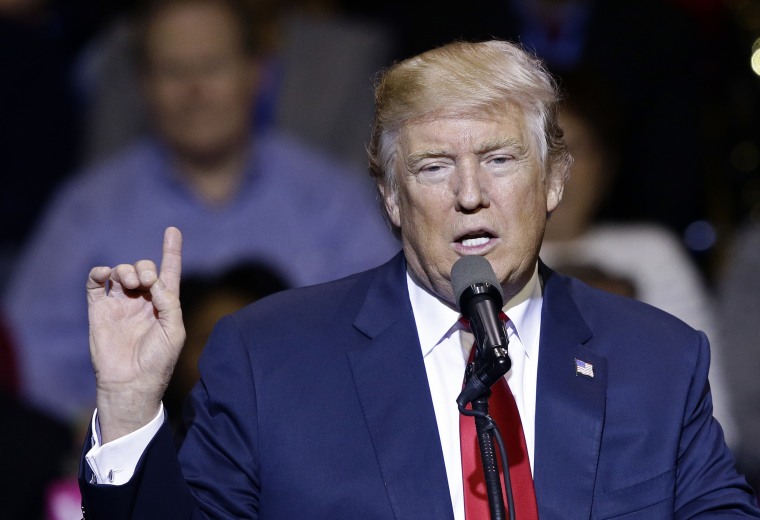President-elect Donald Trump has -- either by design or happenstance -- employed a good cop, bad cop routine on key issues leading up to his Inauguration. And in each case he has played both roles, signaling the unpredictability that defined Trump’s campaign will continue in the White House.
From U.S. relations with China to climate change to corporate America, Trump has taken steps that have both encouraged and frustrated advocates of those groups, leaving them only guessing what their relationship will be with the White House once Trump takes office.
He irked China last week by breaking with decades of U.S. policy and speaking to Taiwanese President Tsai Ing-wen. But days later, Chinese officials were applauding Trump’s decision to name Iowa Gov. Terry Branstad, who has a longstanding friendship with Chinese President Xi Jinping, as the U.S. ambassador to China.
Environmental advocates were encouraged when former Vice President Al Gore made the trip to Trump Tower to meet with the president-elect and his daughter Ivanka, who is reportedly considering making climate change one of her signature issues. But any headway Trump may have made with those groups suffered a severe setback Wednesday when he named Oklahoma Attorney General Scott Pruitt, who has questioned the science of climate change, as administrator of the Environmental Protection Agency.
“Mr. Pruitt’s record is not only that of being a climate change denier, but also someone who has worked closely with the fossil fuel industry to make this country more dependent, not less, on fossil fuels,” Vermont senator Bernie Sanders said in a statement.
And business leaders, who feel like they will soon have a staunch ally in the White House, may have been concerned seeing Trump’s seemingly unprompted tweet about cancelling a Boeing project to construct a new Air Force One that he said would cost $4 billion.
“I think Boeing is doing a little bit of a number,” Trump told reporters at Trump Tower on Tuesday. “We want Boeing to make a lot of money but not that much money.”
But on the same day, Trump also tweeted telecommunications giant SoftBank will invest $50 billion into the economy and add 50,000 jobs.
This type of uncertainty proved to be an asset for Trump in the campaign when he used sporadic and unprompted declarations to get attention and drive the news cycle. But the stakes will be higher once he enters the Oval Office and unpredictability is generally not a favorable characteristic for a commander-in-chief.
Boeing’s stock dipped nearly $2 a share before markets opened Tuesday after Trump’s morning tweet. (The stock did, however, recover throughout the day.) Chinese officials lodged a formal complaint with the United States after Trump’s call with Taiwan, which both countries acknowledge as a part of China.
None of Trump’s moves, however, has yet to cause consternation among Trump’s GOP base. Congressional Republicans reacted mostly favorably to the news that Trump spoke to the leader of Taiwan, as well as his deal with United Technologies to keep about 1,000 jobs at a Carrier plant in Indianapolis, Indiana, from moving to Mexico. That deal was less a product of good cop, bad cop and more a result of carrots and sticks.
That approach, however, has drawn stronger rebuke from critiques who say United Technologies got much more in the way of carrots ($7 million in tax credits) for a deal that will still result in hundreds of jobs being moved. He has also proposed a 35 percent tax on companies who attempt to sell their products in the United States after leaving.
Greg Hayes, the chief executive of United Technologies, told CNBC that the company’s future relationship with the government played a factor in the decision to keep more jobs in the U.S.
“There was a cost as we thought about keeping the Indiana plant open,” he said. “But I was born at night but not last night. I also know that about 10 percent of our revenue comes from the U.S. government,” he added.


